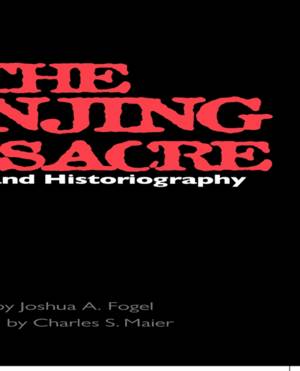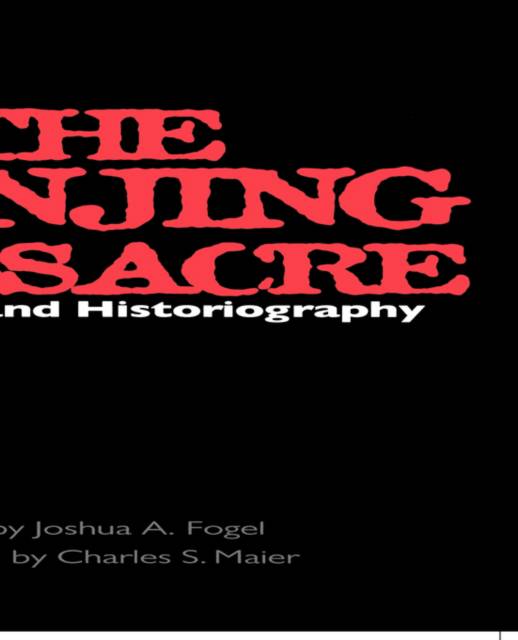
- Afhalen na 1 uur in een winkel met voorraad
- Gratis thuislevering in België vanaf € 30
- Ruim aanbod met 7 miljoen producten
- Afhalen na 1 uur in een winkel met voorraad
- Gratis thuislevering in België vanaf € 30
- Ruim aanbod met 7 miljoen producten
Zoeken
The Nanjing Massacre in History and Historiography
Volume 2
€ 54,45
+ 108 punten
Omschrijving
The Rape of Nanjing was one of the worst atrocities committed during World War II. On December 13, 1937, the Japanese army captured the city of Nanjing, then the capital of wartime China. According to the International Military Tribunal, during the ensuing massacre 20,000 Chinese men of military age were killed and approximately 20,000 cases of rape occurred; in all, the total number of people killed in and around the city of Nanjing was about 200,000. This carefully researched, intelligent collection of original essays considers the post-World War II treatment in China of the Nanjing Massacre and Japan. The book examines how the issue has developed as a political and diplomatic controversy in the five decades since World War II.
In his introduction, Joshua A. Fogel raises the significant moral and historiographical issues that frame the other essays. Mark Eykholt then provides an account of postwar Chinese responses to the massacre. Takashi Yoshida assesses the attempts to downplay the incident and its effects, providing a revealing analysis of Japanese debates over Japan's role in the world and the continuing ambivalence of many Japanese toward their defeat in World War II. In the concluding essay, Daqing Yang widens the scope of the discussion by comparing the Nanjing historiographic debates to similar debates in Germany over the nature of the Holocaust.
In his introduction, Joshua A. Fogel raises the significant moral and historiographical issues that frame the other essays. Mark Eykholt then provides an account of postwar Chinese responses to the massacre. Takashi Yoshida assesses the attempts to downplay the incident and its effects, providing a revealing analysis of Japanese debates over Japan's role in the world and the continuing ambivalence of many Japanese toward their defeat in World War II. In the concluding essay, Daqing Yang widens the scope of the discussion by comparing the Nanjing historiographic debates to similar debates in Germany over the nature of the Holocaust.
Specificaties
Betrokkenen
- Uitgeverij:
Inhoud
- Aantal bladzijden:
- 264
- Taal:
- Engels
- Reeks:
- Reeksnummer:
- nr. 2
Eigenschappen
- Productcode (EAN):
- 9780520220072
- Verschijningsdatum:
- 5/03/2000
- Uitvoering:
- Paperback
- Formaat:
- Trade paperback (VS)
- Afmetingen:
- 159 mm x 228 mm
- Gewicht:
- 403 g

Alleen bij Standaard Boekhandel
+ 108 punten op je klantenkaart van Standaard Boekhandel
Beoordelingen
We publiceren alleen reviews die voldoen aan de voorwaarden voor reviews. Bekijk onze voorwaarden voor reviews.







